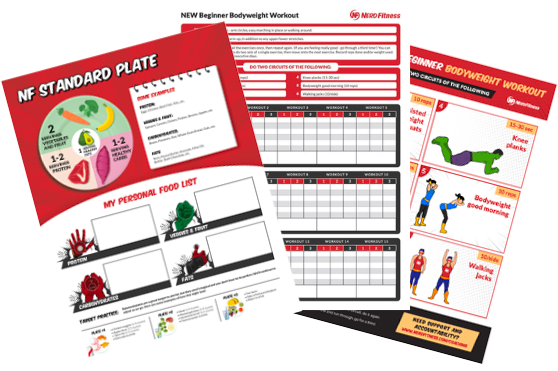I’ve had a love-hate relationship with “hope” for a long time.
Shawshank Redemption, my favorite movie, tells the story of developing hope in a hopeless place.
It has multiple lines that move me to tears and lift me up, but the best is “Hope is a good thing, maybe the best of things. And no good thing ever dies.”
I’m generally hopeful that the future can be better than the present, both for myself and for this planet.
I also know how important hope can be after failing to complete a task, giving up on yet another habit, and feeling demoralized that we can’t stick with a workout routine.
Overall, you could say I’m a big fan of “hope.”
But I’m also well aware that in many cases, “hope is not a strategy.”
We can’t just hope we’ll magically get healthy or build a workout routine, or hope things will work out. I know what unrealistic hope looks like:
I know change is hard, and I also know “hoping for the best” isn’t going to make it happen. Nobody is coming to save us, so it’s on us to make change happen.
Which brings us to today.
My feelings on hope changed after reading Dr. Pooja Lakshmin’s Real Self-Care.
This is a fantastic book that criticizes the “faux” self-care we often see on social media (buy your way to happiness!), and then provides the specific boundary-setting benefits and steps required for healthy, proper self-care that leads to change and progress.
Towards the end of the book, I encountered a definition of “hope” that has given me…well, hope!
Hope needs to be “something you do,” not “something you feel.”
Hope can be practiced by locating a deep desire, value, or commitment and taking a step towards it.
…While optimism is the sense that everything will be okay, people who are hopeful have the understanding that things may not be okay, but that they have agency to make things a little better for themselves or for others.”
As long as we think of it as a practice, not just a feeling…
Hope IS a strategy.
The 4 Tenets of Hope
Life is hard. We do our best to build a workout routine, or change our diet, or work up the courage to make a change, and then life kicks our ass. Our kid gets sick or we get downsized or the world shuts down. And we get derailed.
The more frequently this happens, the more likely we are to become demoralized.
And because we’re humans with feelings, we probably feel an overwhelming desire to run away from this discomfort by coping as best we know how (food, drinking, avoidance, etc.), even if that takes us further away from our goals.
We know this only makes things worse, so what can we do instead?
This is where “Hope Modules” come in.
Designed at George Washington University for patients with cancer or chronic illnesses, Hope Modules can provide a framework for us to treat hope as a strategy.
Dealing with setbacks is hard, but we can develop resilience. We’re not hoping that things turn out for the best, but rather we are “practicing hope” that we can make changes and have some personal agency over how we can move forward.
If you’re at a point on your journey where you’re demoralized, and tired of the negative feedback loop, here are 4 alternative coping mechanisms that can have a virtuous positive influence on us after a failure:
- Problem solving and goal seeking: sit down right now and write out “what’s the next step I can take to improve my lot in life.” This might be applying for the next job, or going to the gym and doing the next workout, or throwing away things that no longer serve you. Can you take the next step? These steps can remind us “I have agency! I’m not completely without a choice.”
- Emotional regulation: This is actively focusing on the reduction of stress, or identifying the things that are wearing us down. Practices like yoga, meditation, journaling, going for a walk, therapy, etc., all work, too.
- Activating a core identity: Take time to ask yourself the important questions: What are my important values? Who is the person I aspire to be? Can I reinforce my position in my family, group, church, club, the NF Rebellion, and even the greater human race? Can I reinforce the shared experience that being a human IS hard, and I’m not alone on this journey?
- Relational coping: Reaching out to a family member or a friend. Reconnecting with somebody that you want to spend more time with. Asking a trusted confidant for advice or even helping mentor somebody else who also is in need.
Build your Hope Toolkit
Think of these things like the gift Galadriel gives Frodo in The Fellowship of the Ring:
‘In this phial,’ she said, ‘is caught the light of Eärendil’s star…
It will shine still brighter when night is about you.
May it be a light to you in dark places, when all other lights go out.”
Take some time right now, and think about the following:
“When things go wrong, when I mess up, when things fall apart, or when I don’t follow through…These specific strategies can help me short circuit unproductive coping mechanisms and help me get back on track sooner.”
This is what we’re really trying to do. Not learning to fail less, but rather how to get back on track more quickly.
So let’s get started:
We need acceptance of our current situation, a reminder of our goals and values, a check-in with people who love us, and then taking deliberate steps towards the life or goal we want.
We can identify what worked or didn’t work on our last attempt. We can make sure we’re on the right path.
And then we can try again.
We can “pivot and persist:”
We can work to envision the future we want, we can identify the different paths to get there, and then we can take the first step to start again. At the same time, we can develop healthier self-talk (self-compassion instead of self-criticism) to build agency and belief that we will continue to try again, and try differently.
This is how we create self-efficacy: earned hope that we can make change that sticks.
Remember, hope is a good thing, maybe the best of things.
And no good thing ever dies.
I hope this article finds you, and finds you well.
Your friend,
-Steve


